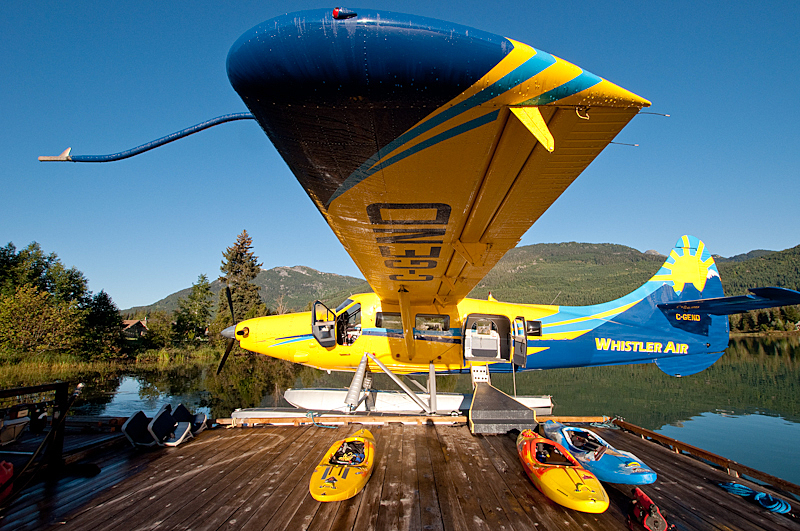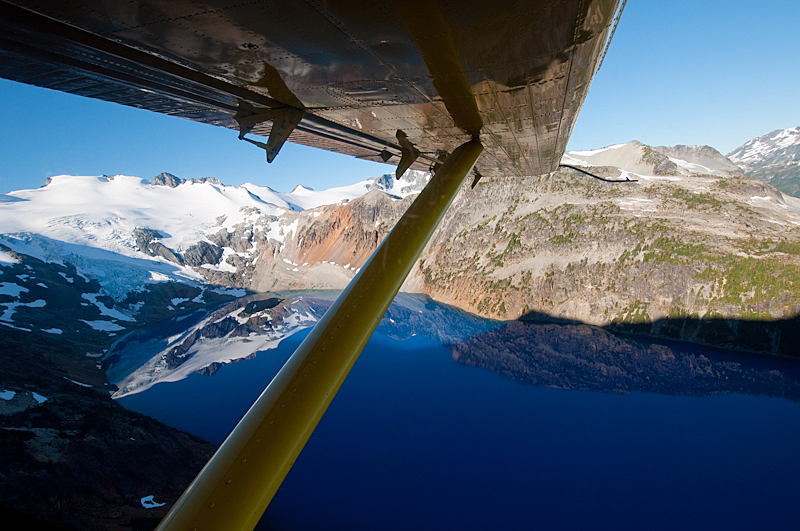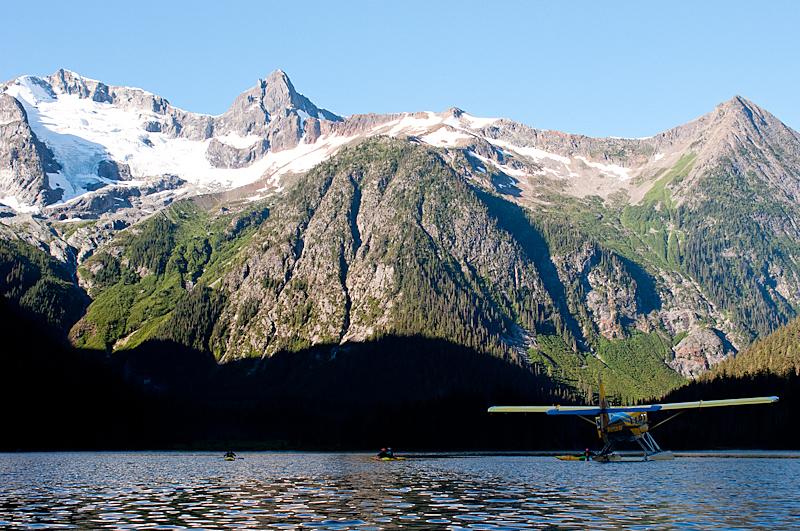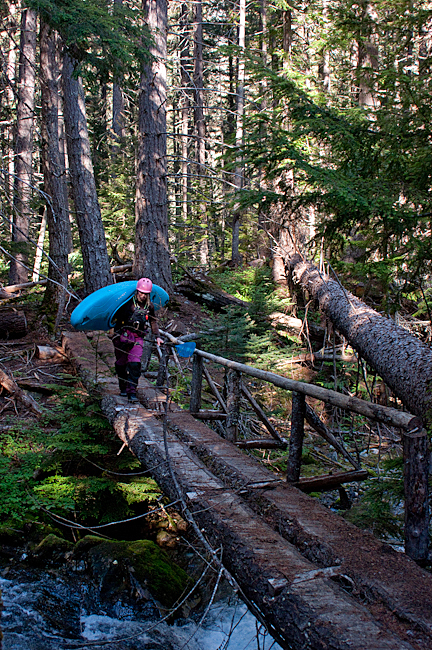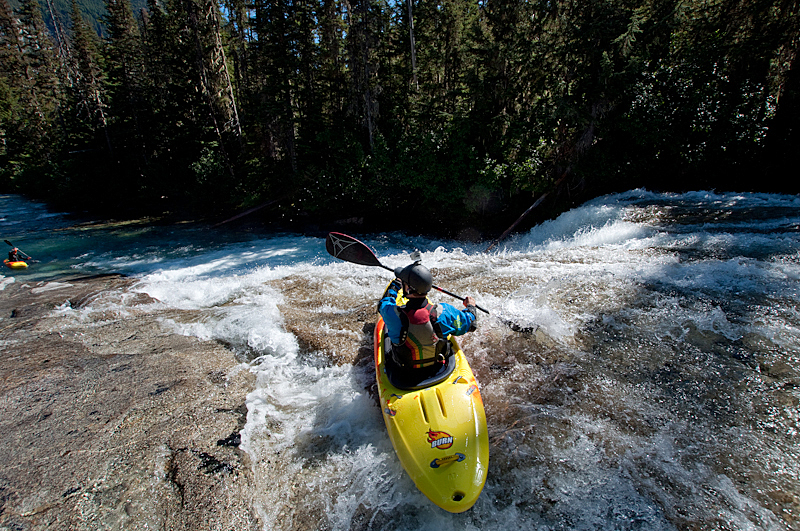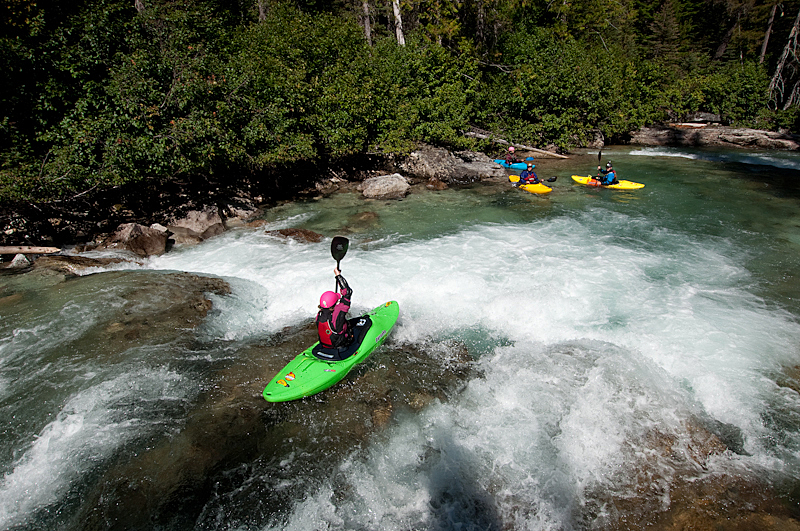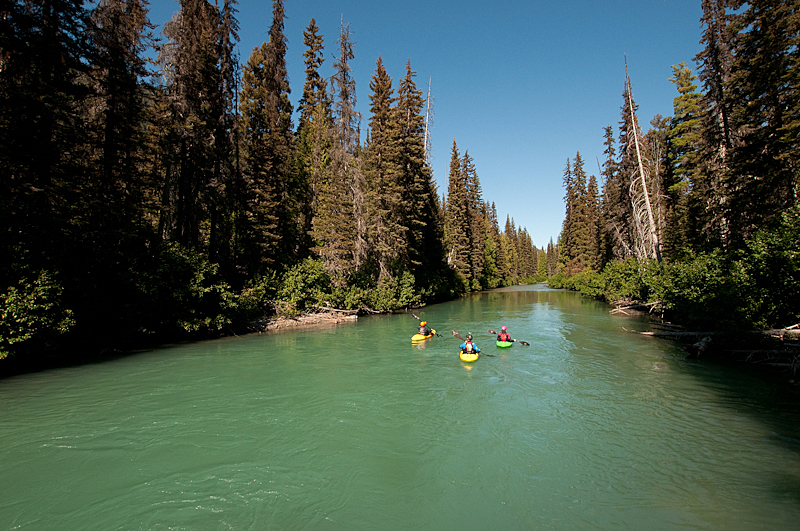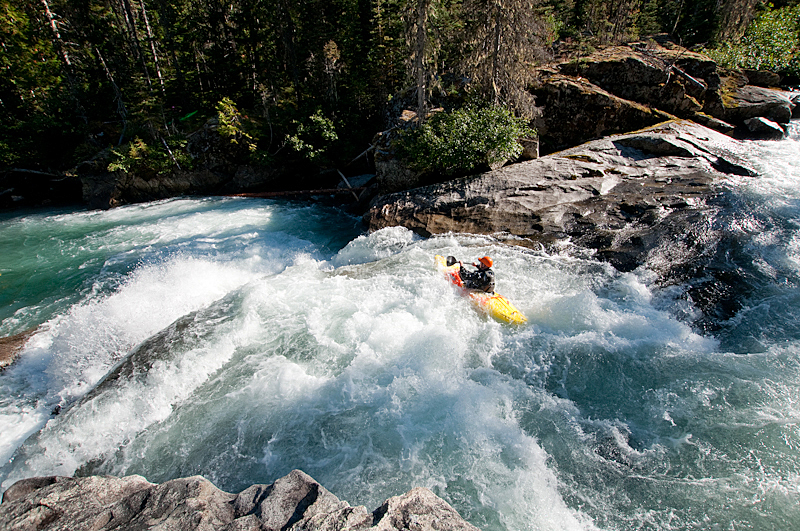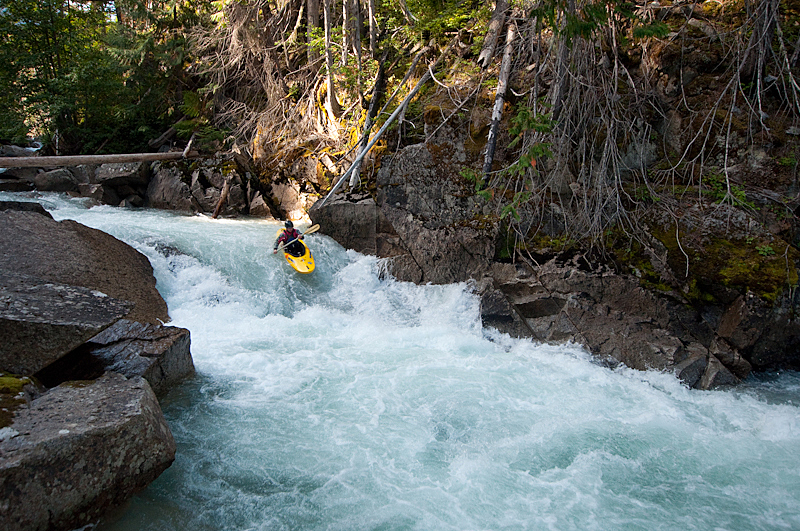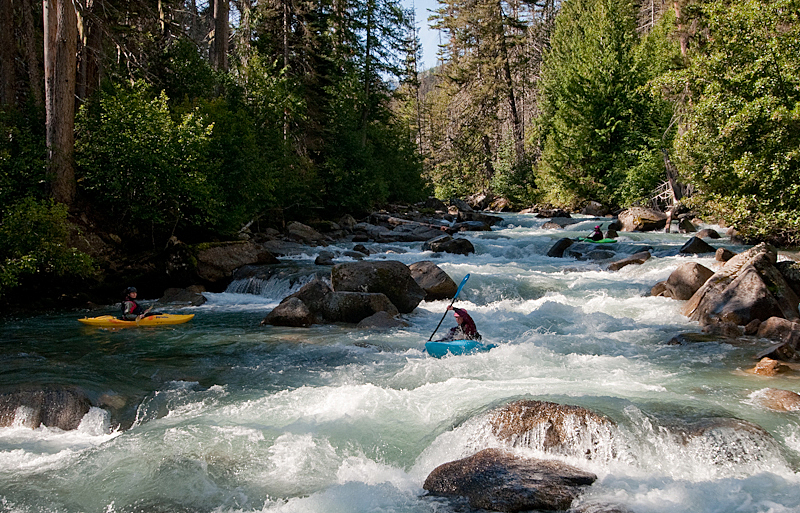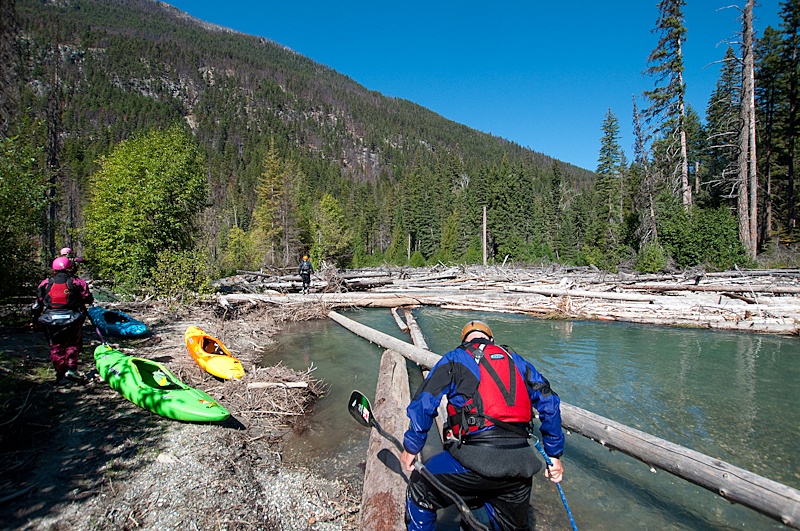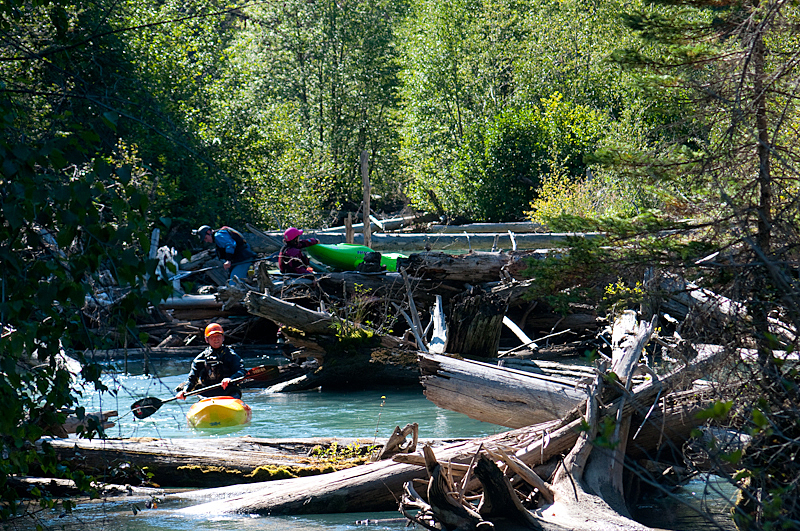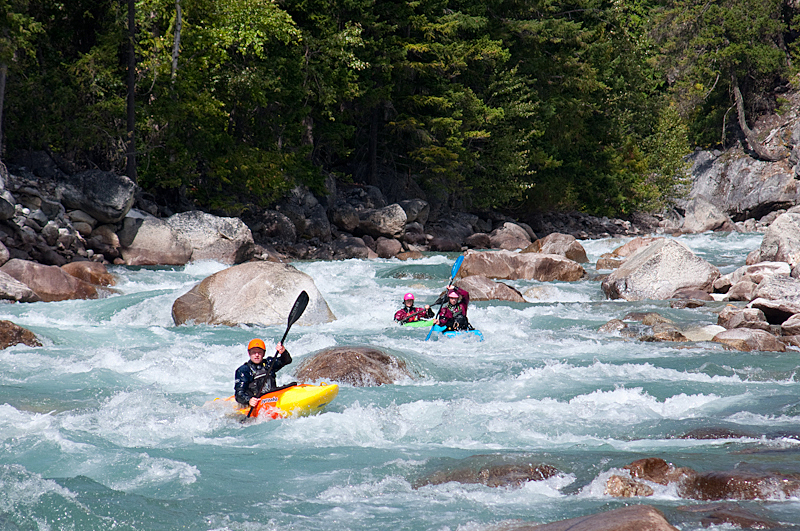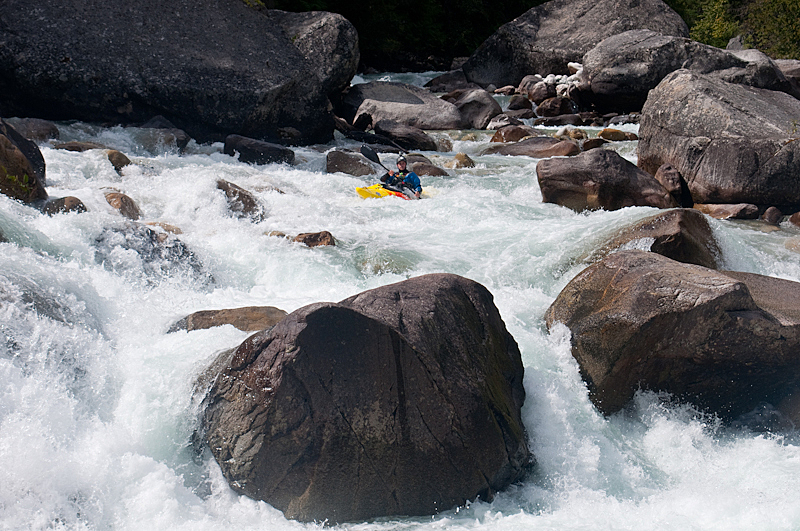The accessiblity of the Stein is now in question after a change of ownership at Whistler Air, now Harbour Air. They will no longer land a plane on Stein Lake, consistent with the non-motorized status of the Stein Valley Park. This is a real loss for the community as the Stein, a relatively moderate multiday trip, is otherwise only accessible by spending 2 days hiking into and then paddling the much more difficult North Stein.
It is our view that the Stein should be made available as a fly in multiday trip for kayakers by special permit. There is a legitmate need for non-motorized areas in southwest BC, however the opportunity for multiday kayak trips is exceedingly rare in this area. The loss of access to the upper Stein is part of an ongoing trend of dimishing river access in southwest BC, largely driven by hydro development and deteriorating forest service roads. Surely a system can be put in place to responsibly manage limited float plane access for the purpose of a whitewater kayaking trip. Even at the height of its popularity, the Stein saw, at most, one or two descents per season.
The Stein River is one of the original classic southwest BC fly in multi day kayak trips. Running from the heart of the Coast Mountains east to the Fraser River, the Stein passes through several distinct ecosystems over its 50 km length. This river system is protected as the Stein Valley Nlaka'pamux Heritage Park, and it remains in pristine condition with no development aside from a hiking trail through the valley. It is a trip worth doing, though it's something you might not want to do every season. While the whitewater is good, particularly through the last third of the river, there are some long flat sections and there tends to be a lot of wood that results in a significant amount of portaging.
The Stein accommodates a range of levels. The normal season is in July and August. Typically the earlier you go the higher the water will be. Early season runs are limited by ice on the lake. Appropriate for grade IV boaters with support at low levels, the Stein is generally seen as a IV-V run if you go early in July. At comparable levels it is a half-step easier than the Clendinning. Strong teams looking for more adventure might want to consider putting in on the North Stein (a burly hike in run that drops into the Stein just below the lake).
Putting in on the Stein used to be easy. Whistler Air used to fly to Stein Lake, but they will no longer land there - you will have to get creative with your access plan, or hike in to the North Stein. The take out is at the confluence of the Stein and Fraser Rivers, near the town of Lytton. There are multiple locations where you can leave vehicles, including but not limited to the Stein Valley Park trailhead, the Lytton cable ferry crossing, or further down the Fraser at its confluence with the Thompson. The drive from Whistler to Lytton over the Duffy Lake road takes 3-4 hours.
Timing the length of your trip on the Stein can be awkward if you want good campsites each night. Strong, fast groups can push through in 2 days, which is typical for those entering via the North Stein (not including the hike in and the paddle down to the main Stein). Groups looking for a relaxed trip, or those who will need a lot of time to scout and portage, will do well taking 4 days, and excellent camping will be available every night. Three days is most common, but it can be challenging to find good camping on the first night without taking a short or long first day on the water.
Stein Lake is an idyllic place to land a float plane. Unfortunately the river is essentially unrunnable because of log jams from the outlet of the lake down to the confluence with the North Stein (about 1.5 km). Thankfully there is a good but strenuous hiking trail on river right so bushwhacking isn't required. Don't drop down to the water until you are sure you've reached the North Stein confluence!
The first real whitewater you encounter will be a series of nice slides followed by a section of flat water. You should find wood portages almost right away. Expect many of the log jams to be mobile from season to season - some years are better than others. If you decide to continue past the flat water into the next section of rapids you will not find good camping for a long time. This section of whitewater is the most committing of the run, with the trail being far away from the water. This section is often referred to as 'the canyon'.
The steep valley walls of 'the canyon' gradually give way, as does the intensity of the rapids. This middle section of the run is largely flat water and two massive log jam portages. The first portage is best on the right, through the forest, and it isn't too bad. The second portage is around a terrible mess of log jams and river braids. It is not nice. The best option here is to portage through the old burnt out forest on the left side. Below the log jams the flat water continues. The start of the final and best section of the river is signified by passing under a large foot bridge.
The final 15 km of the run is absolutely classic read and run whitewater. About half way through is a large class V rapid called Devils Staircase that can be portaged at river level on the right or left. The lower Stein from Devils Staircase down is a popular hike in day trip. Good whitewater continues right to the end of the run where the clear water of the Stein disappears into the murky brown of the massive Fraser River. Stop and celebrate your successful descent and then go find your cars!
